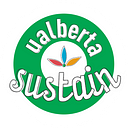Angeline Letourneau’s path to environmental sociology
University of Alberta PhD candidate is researching Alberta oil sands workers’ self-conceptions of masculinity
By Olivia DeBourcier and Trevor Chow-Fraser
Angeline Letourneau is a PhD candidate in environmental sociology and one of the panellists in the Intersections of Gender panel at Sustainability Awareness Week.
Ahead of the event, she shared the story of her journey as a student and oil sands worker and how it led her to switch out of conservation biology and into environmental sociology. She is now about to embark on her doctoral research exploring how male-identifying oil and gas workers perceive masculinity and how it shapes their readiness for a transition away from fossil fuels.
What led you to be interested in environmental issues?
I have a settler history. I will be the fourth generation of my family in Canada, we have a family farm and everything. I came from small-town Alberta, so my interest in the environment started very young. But it came from a very rural, neoliberal ideology where you protect the environment in order to protect the resources that you will then harvest.
It was through both my experiences working in the oil and gas industry as well as through some very influential classes that I took here at the university that made me aware of the colonial history that I was part of and that I had a responsibility to rethink environmentalism from a more intersectional perspective.
You’re just met with this reality of — oh my gosh, we have no idea what we’re doing
What path led you to working in oil and gas?
I had a really wonderful professor in my first year who is really kind and gave me a job in his land reclamation lab and I was able to experience firsthand the violent destruction that is the northern oil sands. When you’re working in a reclamation lab and you’re doing the tests every day, you’re just met with this reality of — oh my gosh, we have no idea what we’re doing, we have no idea what we’re going to do with this [land]. So that was pretty shocking and discouraging.
And then I actually got to work for Syncrude in their land reclamation department the next summer. So then I got to see how little money goes into the reclamation and how little forethought happens in long-term mine planning. I worked with such a wonderful team, but, at the end of the day, no one in there knows how we’re going to close these mines and [have the ecosystems] come back to the capacity they were before.
How did you feel coming out of that experience?
I think everyone’s trying their best, but it’s kind of discouraging. That really made me reconsider — do I actually want to do conservation biology if this is the career it sets me up for? It just sounds very depressing for the rest of my life. That’s where I saw the BA in environmental studies as being much better [for me].
And now, just a few years later, you’re doing a PhD in environmental sociology. Can you describe what you’re looking at in your doctoral research?
My research interests really are gender and the environment through an intersectional lens. Typically when we’re thinking about gender and the environment, the conversation kind of goes in the direction of women. Masculinity, we found, is often missing from those sociological discourses.
This research is really trying to start piecing together more of those masculine identities and kind of exploring how they might be related to the entrenchment of fossil fuels. My hope is to interview male-identifying subjects within the [fossil fuel] industry and get an understanding of how they define themselves as men, how they define masculinity, and to ask, “what do you think makes a good man?” As well as how they see their relationship with nature, particularly the destructive work that they are taking part in and how they rationalize and grapple with that for themselves.
Learn more about Angline Letourneau’s work on gender and the energy sector at Sustainability through an Intersectional Lens — A Graduate Research Showcase on Thursday Oct. 29 at 11 a.m.
For more information about Sustainability Awareness Week and to see the full schedule, please visit: uab.ca/saw
